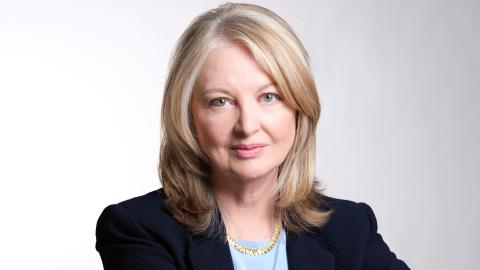Saudi Arabia has just had its own St. Valentine’s Day Massacre -- a bloodless one that brings hope of much-needed reform. On February 14, Saudi Arabia’s King Abdullah carried out a sweeping shake up of his cabinet and government. He replaced several of the government’s top Wahhabi ideologues with others thought to be more religiously tolerant, reform-minded, and with close working ties to the king.
If there is any truth in the adage "personnel is policy", this may be the first real sign that the King, who ascended to the throne in 2005, intends to live up to his long-term but, until now, overblown reputation as a reformer. While nothing is certain, this gives hope that Saudi Arabia may finally be ready to adjust peacefully to a globalized, pluralistic modern world. And, with Saudi Arabia’s disproportionate and distorting impact on Sunni Islam worldwide, this gives hope also for American security interests.
The new head of the muttawah -- the religious police who violently enforce Wahhabi dress and behavior strictures on Muslims and non-Muslims alike -- is the auspiciously-named, reputed moderate Abdul Aziz bin Humain. The former head of the Consultative Council Saleh bin Humaid replaces the country’s Supreme Judicial Council head, who just a few months ago declared it permissible for Muslims to kill owners of satellite television channels and in 2004 sanctioned Saudi jihadists to go to Iraq to kill Americans. The Grand Ulema Commission is being reestablished with diverse Sunni leaders that will dilute the influence of the hardcore Wahhabis. The king also replaced the cultural minister with the open-minded former ambassador to Lebanon, reshuffled the human-rights commission leadership, and created a new position of deputy minister of education for female affairs and appointed a woman to the post, making her the most senior woman in the Saudi government.
Most significantly, the king replaced the minister of education with his son-in-law Prince Faisal bin Abdullah, a former assistant director of intelligence. The prince reportedly has been working on education reform behind the scenes, and his prior intelligence work certainly well positions him to know how Saudi education has directly fed jihadi ideology.
The ousted minister, Abdullah al-Obaid, had come to education in 2005 from the post of secretary general of the Muslim World League, the multibillion dollar Saudi operation created to spread hard-core Wahhabism around the world.
The ministry imposes a curriculum indoctrinating students in an ideology of hatred and violence against the religious other. It teaches as a religious imperative the cultivation of hatred for Jews, Christians, Westerners, and other infidels, polytheists (such as Shiites and Hindus), apostates, and homosexuals. It licenses the murder with impunity of members of most of these groups.
Saudi representatives and their agents constantly claim that the ministry of education’s textbooks have been reformed. As our July 2008 report demonstrates, this is mendacious: The culture of hatred against the non-Wahhabi is alive and well in the Saudi government’s Islamic studies textbooks. These textbooks are required for all Saudi pubic schools and dominate the Saudi curriculum in the upper grades. The ministry posts these texts in full on its website and the government’s Wahhabi establishment ships them free to mosques and Muslim schools and libraries throughout the world.
According to Saudi human-rights expert Ali Al Ahmed, president of the Washington-based Institute for Gulf Affairs: “This could be a watershed for Saudi education. Prince Faisal is known to be effective and have the king’s trust. He is someone capable of overhauling the curriculum.”
This is not to say that Saudi Arabia is moving toward a separation of mosque and state. That would require, for example, not merely a shift in personnel of the religious police, whose raison d’etre is to coerce religious observance, but its complete abolition. Nor is there any sign of a greater political opening, much less a democratic revolution. Shiites lost ground in the now expanded Consultative Council. And, only in Saudi Arabia could replacing officials with royal family members be celebrated as reform. Nevertheless, these changes bring hope for the modernizing of Saudi education. Such decisive action by the monarch, who financially underwrites and politically empowers those who’ve shaped Saudi culture, has been long overdue. Whether cultural change will finally now come to the Kingdom bears close watching.













